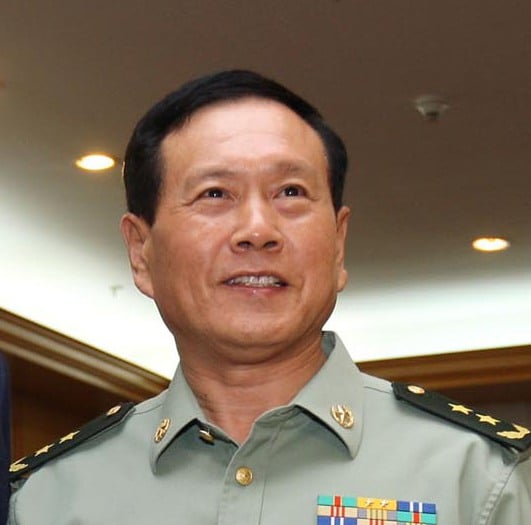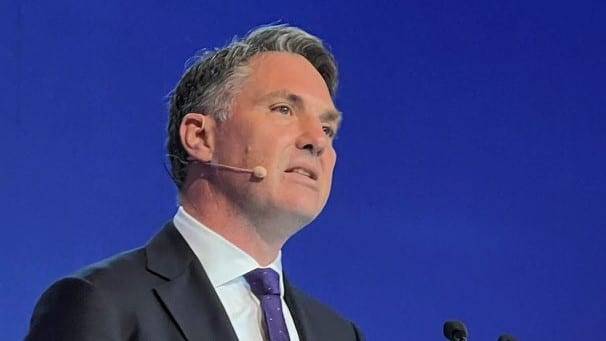Australia’s Deputy PM is also Defence Minister. Source: Richard Marles, Twitter.
The occasion marked the first time Australia and China have met in over three years, with the IISS Shangri-dialogue offering a chance for the deputy prime minister to discuss defence with various nations.
Asia’s biggest defence summit was attended by China’s defence minister Wei Fenghe, which Marles said was “an important first step” for Australian-Chinese relations.
“It was an opportunity to have a very frank and full exchange in which I raised a number of issues of concern to Australia.
“Australia and China’s relationship is complex. And it’s precisely because of this complexity, that it is really important that we are engaging in dialogue right now.”
The pair talked about China’s presence in the Pacific, as well the encounter of the Australian and Chinese fighter jet. Talking with Al Jazeera, Marles commented on the fighter jet incident saying Australia’s concerns lie with exercising their rights and military activities “safely”.
“Freedom of navigation within the South China Sea, and that includes freedom of airspace, where people have the right to engage under international law, which is what Australia is doing.
“We’ll continue to engage in those activities going forward. We obviously are not going to be deterred by what’s occurred in respect of that, because asserting freedom of navigation, asserting the global rule-based order in this area is really critical to our national interest.”

He also met with French counterpart Sebastien Lecornu, later commenting “defence cooperation is back on track” after PM Anthony Albanese recently announced a $830 million settlement over the French submarine deal.
Albanese thanked President Macron for “discussions” saying that the pair “are re-establishing a better relationship between Australia and France”. The total cost of the submarine deal is now valued at $3.4 billion, with the previous deal under the Morrison government worth $5.5 billion.
While at the summit Marles met with representatives from several countries including, Malaysia and Japan, as well as Korea, New Zealand, and the Solomon Islands, who has played a big part in China’s presence within the Pacific.
He said discussions were centred around “our enduring security partnership” while he and Anthony Veke, spoke of “ commitment to a peaceful, inclusive, and resilient Pacific”.
The Main agendas of the IISS dialogues were centred around security cooperation, military defence capabilities as well as climate and maritime security.





